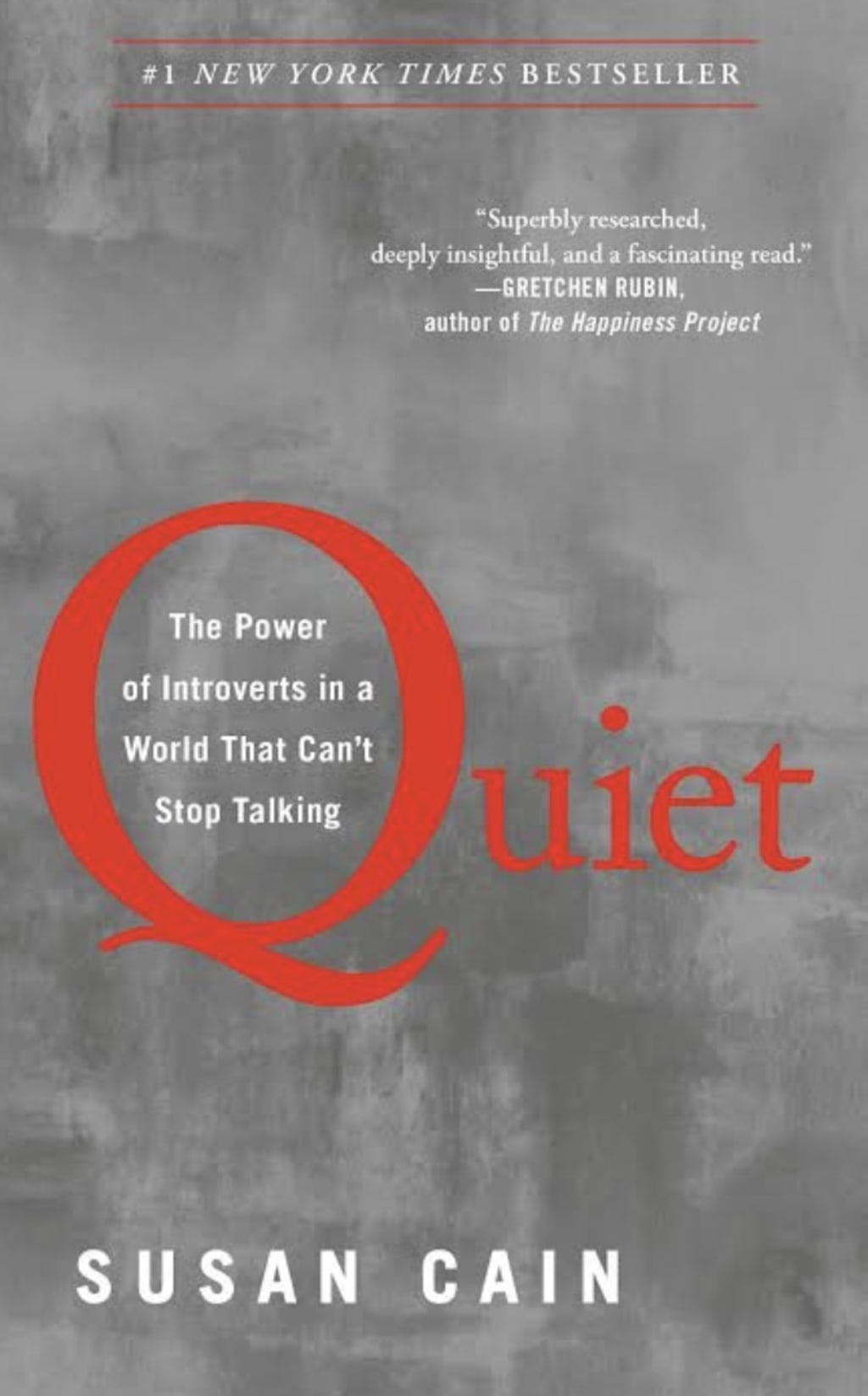
Quiet: The Power of Introverts in a World That Can't Stop Talking" is a non-fiction book written by Susan Cain and published in 2012. The book explores the concept of introversion and the societal pressure to conform to extroverted ideals.
The book begins by introducing the reader to the concept of introversion and extroversion and how they are typically understood in Western culture. Cain argues that Western society values extroversion and often sees introversion as a negative trait. The book then delves into research and studies that have been conducted on introversion and extroversion, and how these traits affect people in different settings such as the workplace, school, and home.
Cain also explores the history of the societal shift towards extroversion and the impact that this has had on individuals who identify as introverted. She also examines the strengths and weaknesses of introverts and extroverts, and how they can best work together. The book concludes with practical advice for introverts on how to navigate and thrive in a world that is often geared towards extroverts.
The book has received positive reviews for its comprehensive exploration of the topic of introversion. Critics have praised Cain's research and writing style, and some have noted that the book provides valuable insights and advice for introverts. Others have noted that the book may be of interest to extroverts as well, as it provides a better understanding of introverted individuals and how they can be better appreciated and accommodated in various settings.
Here are some of the ideas that i love about this book:
- The importance of understanding the difference between introversion and extroversion: "Quiet" highlights the importance of understanding the difference between introversion and extroversion and the impact that these personality traits can have on an individual's life.
- The societal pressure to conform to extroverted ideals: The book delves into the societal pressure to conform to extroverted ideals and how this can negatively impact introverted individuals.
- The strengths of introverts: The book explores the strengths of introverts, such as their ability to think deeply, work independently, and lead in their own unique way.
- The value of introverts in the workplace: "Quiet" highlights the value of introverts in the workplace and how their unique strengths can contribute to the success of a company.
- The need for a balance between introverts and extroverts: The book argues that a balance between introverts and extroverts is necessary for a healthy and productive society, and encourages the appreciation and accommodation of both personalities.
- How introverts can thrive in an extroverted world: The book provides practical advice for introverts on how to navigate and thrive in a world that is often geared towards extroverts, such as learning to assert themselves and setting boundaries.
Some of the key quote from the book are :
- "There's zero correlation between being the best talker and having the best ideas."
- "Solitude is a crucial ingredient to creativity. The space and quiet that it provides gives us an opportunity to think and reflect, to gain insight and inspiration."
- "The secret to life is to put yourself in the right lighting. For some, it's a Broadway spotlight; for others, a lamplit desk."
- "The most important thing to remember about introverts is that they are different, not less."
- "Introversion - along with its cousins sensitivity, seriousness, and shyness - is now a second-class personality trait, somewhere between a disappointment and an pathology."
- "Introverts are not necessarily shy. Shyness is the fear of social disapproval or humiliation, while introversion is a preference for environments that are not overstimulating."
- "Introverts are more sensitive to external stimuli and as a result, they often prefer quieter, less harried settings."
- "Introverts are more than capable of leadership, as long as they are given the chance to lead in their own style.






Comments
There are no comments for this story
Be the first to respond and start the conversation.